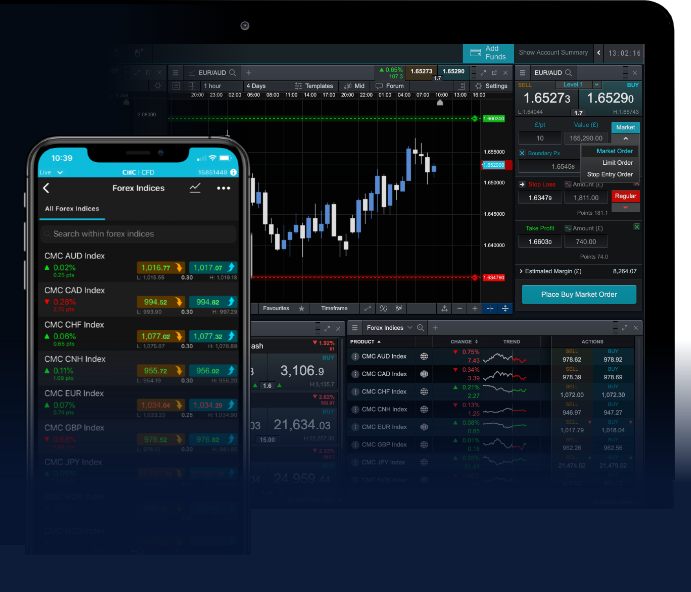
The foreign exchange market, commonly known as Forex, is one of the largest and most liquid financial markets in the world. With trillions of dollars traded daily, the impact of Forex trading regulations is profound. This article delves into the various regulations that govern Forex trading, their importance in fostering a secure trading environment, and how they affect traders globally. If you’re interested in entering the Forex market, consider using reliable forex trading regulations Forex Trading Apps to help you navigate this complex landscape.
Regulations in Forex trading are designed to protect investors and ensure fair trading practices. They vary significantly from one country to another, affecting the trading experience and the types of available financial instruments. Major financial authorities, such as the U.S. Securities and Exchange Commission (SEC), the Commodity Futures Trading Commission (CFTC), the Financial Conduct Authority (FCA) in the UK, and the Australian Securities and Investments Commission (ASIC), are responsible for establishing and enforcing these regulations.
One key aspect of Forex trading regulations is licensing. Brokers who wish to operate in a specific jurisdiction must obtain a license from the local regulatory authority. This process often entails thorough background checks and the need for brokers to maintain certain standards of financial stability, which helps protect traders from untrustworthy operators. For example, brokers regulated by the FCA are mandated to hold a minimum of £730,000 in their accounts to ensure they can meet client obligations.
Another important regulatory aspect is the implementation of rules around leverage and margin trading. Leverage allows traders to control larger positions than their actual investment, amplifying both potential gains and losses. Many jurisdictions have set strict limits on leverage to protect retail traders from excessive risk. For instance, while some brokers in Europe may offer leverage up to 1:30, traders in regions with less stringent regulations might have access to leverage ratios as high as 1:500 or even higher.
Moreover, Forex trading regulations additionally stipulate transparency and reporting requirements to tackle fraud and money laundering. Many regulatory bodies require brokers to disclose their spreads and commissions and regularly report their financial health. This openness ensures that traders can make informed decisions when choosing their brokers and trading strategies.
The Importance of Regulatory Compliance

Compliance with Forex trading regulations is not merely a legal requirement but a cornerstone of ethical trading practices. Regulatory compliance enhances market integrity, builds investor confidence, and contributes to the stability of the financial system. Traders can rest assured knowing that brokers under regulatory scrutiny are less likely to engage in deceptive practices such as price manipulation, unauthorized trading, or hidden fees.
Furthermore, regulations help in resolving disputes between traders and brokers. Most regulatory authorities provide mechanisms for the remittance of grievances, ensuring that traders have recourse should they face issues like fund withdrawal delays or unfair treatment. Different jurisdictions have varying practices for dispute resolution, but regulators typically have robust systems in place to safeguard traders’ rights.
Global Variation in Forex Regulations
Forex trading regulations are not uniform worldwide. Each country establishes its own rules based on its financial market structure, economic priorities, and investor protection goals. For instance, while the U.S. imposes stringent regulations to protect traders, other regions may be more lenient, thereby presenting both opportunities and risks for traders. The key is for traders to thoroughly research the regulatory environment of their chosen trading jurisdiction.
In Europe, the European Securities and Markets Authority (ESMA) has enacted several regulations to enhance transparency and reduce leverage among Forex brokers. These regulations have made trading safer for retail investors but also more challenging due to the reduced leverage available. Conversely, in countries like Cyprus, many Forex brokers benefit from a relatively liberal regulatory environment, which can be appealing for those seeking higher leverage options.
The Role of Technology in Compliance

As the Forex trading landscape continues to evolve, technology plays an increasingly vital role in enabling compliance. Online trading platforms often come equipped with built-in compliance features that assist brokers in adhering to regulators’ requirements. For example, automated reporting systems can help brokers manage their obligations seamlessly. Additionally, trading apps are being enhanced with security features to protect users’ personal information and funds.
Investors are also leveraging technology for enhanced security when trading. Features such as two-factor authentication and advanced encryption are becoming standard in reputable Forex trading apps. These security measures not only align with regulatory requirements but also assure traders that their personal data remains safe.
Challenges in the Regulatory Landscape
Despite the benefits of Forex trading regulations, challenges remain. One major concern is the rise of unregulated brokers that operate outside the purview of national regulatory authorities. This can pose significant risks to retail traders, as they may not receive the same level of consumer protection that regulated brokers must provide. Traders must exercise caution, conducting thorough due diligence before selecting a broker.
Additionally, the global nature of Forex trading often leads to regulatory arbitrage, where brokers operate in less regulated jurisdictions to exploit loopholes. This phenomenon can undermine efforts towards creating a level playing field and protecting traders. To combat these challenges, international cooperation among regulatory bodies is essential, enabling them to share best practices and information about potential threats within the market.
Conclusion
Forex trading regulations play an indispensable role in fostering a secure trading environment that protects investors and ensures market integrity. While challenges remain, particularly in terms of unregulated brokers and varying levels of oversight globally, the ongoing evolution of these regulations reflects the commitment to improving trader safety. As the Forex market continues to grow, staying informed about regulations is vital for all traders, ensuring they can navigate this complex landscape effectively. By leveraging regulated Forex brokers and utilizing advanced trading platforms, traders can enhance their trading experience while minimizing risks associated with unregulated environments.
